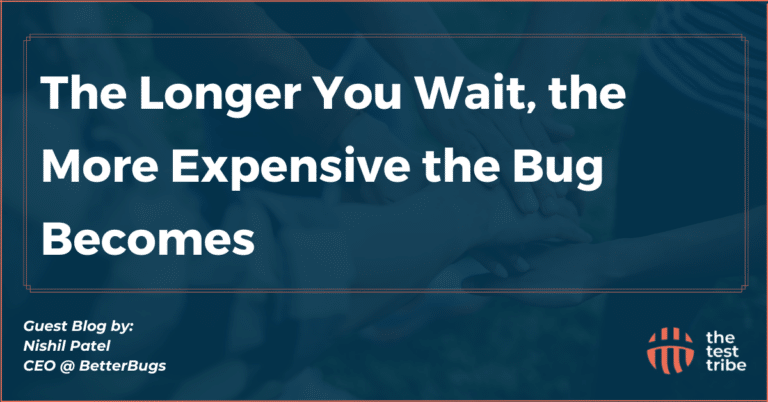It’s that time of year again—performance review season. Reviewing impact statements across various crafts, I’ve noticed a pattern among Quality Engineering (QE) professionals. Statements often focus on test cases, defects found, and deadlines met. But is that truly all we bring to the table? I believe there’s a much broader, often undervalued, impact on the QE role.
We provide genuine value by documenting user flow, validating functionality, and building confidence in the product’s reliability, ultimately improving the user experience and brand value. To better understand why we are not showcasing our actual value, I’ve spoken to QEs across levels and done self-introspection to understand my feelings, and I’ve discovered that what we are experiencing is often referred to as imposter syndrome – a psychological phenomenon that leads to self-doubt, making one question their abilities and fear being exposed as a fraud, despite all the evidence of their competence.
Through my discussions and introspection, I’ve identified key aspects that contribute to this underrepresentation of value:
Aspects Identified
Downplaying Success: QEs often dismiss their achievements, attributing them to luck or “perfect timing” instead of their skills. For example, after a big promotion, I remember saying, “It was just perfect timing,” instead of acknowledging my hard work. After a successful release, I might say, “I missed a small defect. It was awful. I should have found it sooner,” focusing on what was missed, not what was achieved.
“Not Good Enough” Feeling: Many QEs feel their skills aren’t enough, even when competent. They might shy away from help because they think, “I should know this already.” For instance, a QA who’s excellent at manual testing and finds critical bugs might feel inadequate because they don’t know how to code, ignoring the value their insights bring. Also, they may struggle for hours rather than asking a question for fear of looking incompetent.
Comparing Themselves to Developers: QEs often feel their role is less important because they “just test” instead of “build.” It’s like thinking, “They built a whole feature, I just tested it,” forgetting that QA is also building the product.
Fear of Being Exposed: Many QEs fear that others will realize they aren’t as knowledgeable or technical as they appear. For example, I often compare my skills to developers’, wondering if they could see that I didn’t know the exact technical details. During technical meetings, I feel lost in the jargon, afraid that people will realize I do not know all the in-depth information.
Mastering handling popup in selenium can boost confidence and reduce imposter syndrome among QAs.
Leadership Underestimation: Organizations often overlook QEs for leadership roles, assuming they lack strategic vision. For instance, a QA leader with years of experience setting up practice and mentoring might not be considered for senior management.
Undervalued Impact: QEs often feel that when a product succeeds, developers or designers are only credited; their contributions are usually not valued and visible.
While imposter syndrome affects individuals across all crafts, it is especially prevalent among QEs due to several factors:
Reasons
“Just the Last Check“: People often think of QA as the last thing we do before a product goes out. We check whether it works, but this does not help make the product successful. We’re seen as gatekeepers, not the people who help build it.
“Too Much Tech Talk“: We use complicated tech terms when discussing developers. This can make us feel like we’re not smart enough or missing something vital, like we’re not in the loop.
“Soft Skills Don’t Count“: We often use communication and teamwork in QA. But sometimes, it feels like people only care about tech skills, and those other skills are not that important.
“Need to Code“: With more and more talk about automation, QEs must be good at coding. It makes them feel like they must be developers even when coding isn’t their strength. It causes anxiety.
“My Fault If Anything Goes Wrong“: Because QA is responsible for product quality, it can feel like it’s all our fault if something goes wrong.
“Always Learning, Never Enough“: QA always has new things to learn. It can feel like you must always learn more and can never know enough.
Approaches that Can Help with Imposter Syndrome
The impact of imposter syndrome is profound, and I’ve felt its pull, especially as I’ve been diving deeper into areas like AI and technology leadership. Self-doubt can easily creep in and stop you from sharing innovative ideas, speaking up in meetings, leading your team effectively, or taking opportunities to grow. I’ve seen it create a frustrating cycle of self-doubt that holds us back.
So, what can we do about it? How can we break free from this feeling, especially in a rapidly changing world with new technologies? There are many ways to tackle imposter syndrome, such as positive thinking, a shift in mindset to see challenges as opportunities, building a supportive network, and continuous learning. However,
I’ve found a few approaches beneficial for me in the context of navigating the ever-changing landscape of technology and my specific role of technology leadership:
Embrace the Unknown: I’ve started accepting that there will always be areas where I have gaps in knowledge, and it’s normal. So, rather than fretting about the 10% I might not know, I consciously focus on the 90% of my expertise and experiences that I know well. There will always be gaps in knowledge, and it is okay to have them if I am ready to do something about it.
Skill Up When Needed: If the area where I lack knowledge is crucial for my role, I dive into it and learn proactively. It’s about building skills and expertise, not waiting for opportunities. This is especially important in the tech space, where things constantly change.
Diverse Project Experience: I’ve found it beneficial to step outside my comfort zone by taking up different roles on projects, such as scrum master, engagement lead, or DevOps. This has helped me understand how different crafts approach challenges and broadened my knowledge. This gave me a strong understanding of the delivery aspects and provided a new perspective from an engineering standpoint.
Opportunity Mindset
These approaches, while simple, have been beneficial for me so far. They’ve helped me to move forward and embrace change rather than fear it.
Even geniuses like Einstein struggled with imposter syndrome, and yet, look at the impact he had! Like him, we must push past self-doubt and show our actual value. We’re not just testers but quality champions and key partners in building successful products.
Let’s learn from each other. What strategies have helped you? What patterns have you seen? Share your ideas and solutions, and let’s lift each other.





